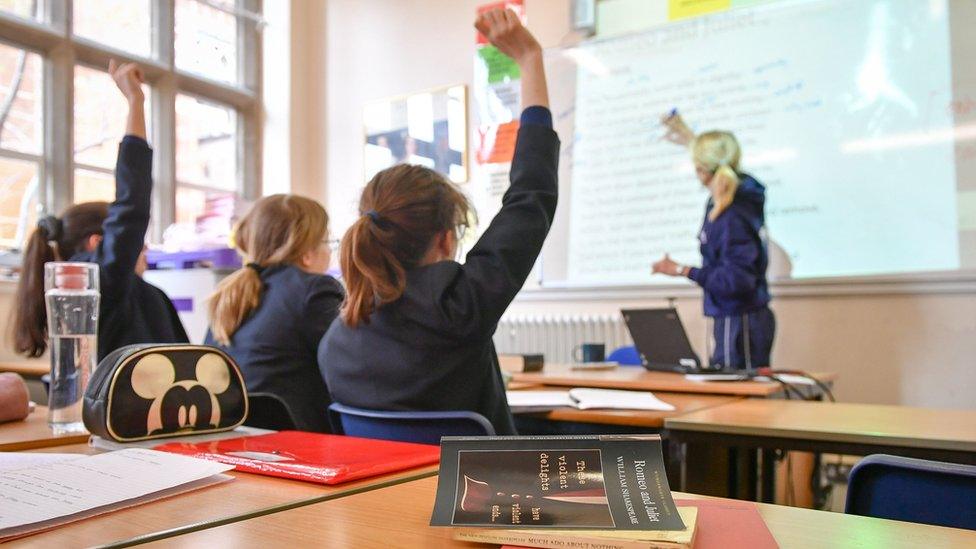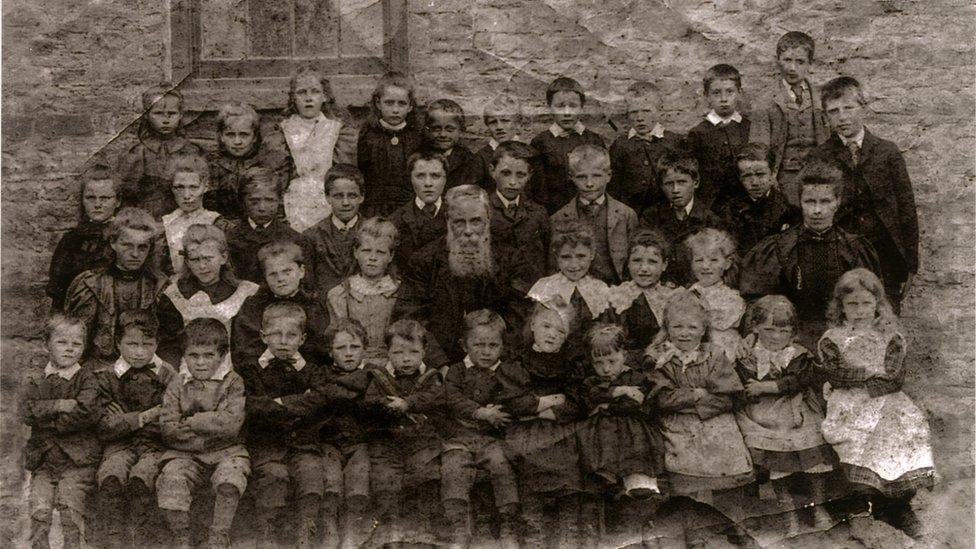Longer school days trialled in Wales to help pupils who lost out on school time over the pandemic.
- Published
- comments

How does a longer school day sound to you?
While it might not be popular with all children, it's being trialled in Wales as a way of helping children who have lost out on school time due to the pandemic.
Fourteen primary and secondary schools in south Wales can decide what to do with the extra time and may put on extra session on art, music, sport or academic subjects.
If the ten-week trial is successful it could be introduced permanently.
Over the coming months the Welsh government says education staff, young people and their families will also be asked their views on changing school terms dates. It says a shorter summer holiday could stop some pupils having their learning disrupted by the long break.

The trial will start in the new year and will run for up to 10 weeks at schools in Blaenau Gwent, Vale of Glamorgan, Rhondda Cynon Taf, Neath Port Talbot and Cardiff.
Ministers said the focus would be on helping disadvantaged pupils and schools that had been badly hit by the pandemic.
For instance, at Cadoxton Primary School, in Barry, Vale of Glamorgan, Year Six pupils will be offered extra sessions after normal school hours, four days a week and a book club on Friday morning.

Schools can do sports and activities instead of traditional classroom lessons
There will be a DJ club, cookery club and sport, which will be run by outside providers and school staff and all eligible children will be encouraged to attend.
The head of school, Rhian Milton, said: "It has to be different to what they're offered already in the school day.
But Laura Doel from school leaders' union NAHT Cymru, said there wasn't evidence of why changes were needed .
"Evidence shows that keeping children in school for longer does not increase a child's capacity to learn; the focus should be on providing quality teaching and learning during schools' hours," she said.
Why are school days and holidays as they are?

Campaigners for school reform say current patterns are based on 19th Century society when school days and terms were largely based around the needs of farming communities.
Schools set their own patterns and going to school was voluntary.
Historian Martin Johnes said: "Schools had to fit with the requirements of local communities if they wanted children to attend and teachers to be paid.
"Children were needed to help with a variety of agricultural tasks such as sowing, harvests, and hay gathering.
"That created the norm of a long summer holiday."

This school photo was taken at Maestir School in St Fagans, Cardiff between 1892 and 1894
In the early days, teachers set school days too.
Prof Johnes added: "With children having to walk to school, and often do chores afterwards, then a relatively short day made sense for parents, especially in the winter days when children might be walking home in the dark."
Now, local authorities set term times for schools, and there are often minor variations between different parts of Wales.
Traditionally, there has been a pattern of three terms per school year - but it could move to four or five terms.
In Wales, the school governors are mainly responsible for setting times for the school day,
- Published9 December 2021

- Published2 July 2013

- Published16 March 2021

